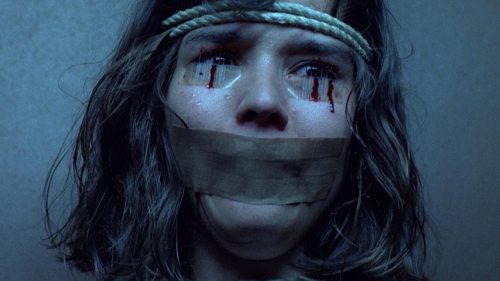MUBI Movies: ANTONIA (2015)
MUBI is a streaming service catering to cinephiles who believe in quality over quantity. Each day, MUBI adds a new film to its library, where it will stay for 30 days, after which it circulates out and gives room for another new entry. Throughout 2018, we will highlight one MUBI movie per month to help illustrate the catalog’s breadth and importance.
When Luca Guadagnino makes a recommendation, you listen.
That’s what drew me to Antonia as I scrolled through the MUBI selections for this month’s article. Rather than the usual plot summary, MUBI provided a quote from Guadagnino, and it didn’t take much more coaxing for me to see what the singular auteur found so fascinating in this 2015 film. Granted, Guadagnino does hold a producer credit on Antonia, but it’s clear that fellow Italian filmmaker Ferdinando Cito Filomarino has a distinct voice from Guadagnino, despite being just as much of an enthusiast for artistic and cinematic classicism. What sets Filomarino apart, and is arguably his strength, is that he doesn’t seem to care how narrow his audience is, yet still can make a work of esoteric beauty for those who don’t completely follow along on his wavelength.
The subject of Filomarino’s film is Antonia Pozzi, a poet who died at the age of twenty-six in 1936. Through this meditation on her life, we come to see her schooling, in which we see her idolize her professor and, through him, Greek epics, which fosters her evolution into young womanhood, largely characterized by depression and loneliness despite the persistent presence of friends and family to keep her company. As a writer, she was dismissed by publishers for being too personal and idiosyncratic due to her youth and apparent lack of life experience, but it was only after her premature death that her poems became recognized for their artistry.
Now, it would be an entirely fair criticism to call Antonia impenetrably opaque. There is an expectation that the viewer is at least somewhat familiar with the life or work of Antonia Pozzi, and much like the American author of this article, I imagine that the vast majority of you reading are not terribly familiar with twentieth-century Italian literature. The film settles into this groove of showing scenes from Pozzi’s life, often without introduction of the players or context for their inclusion in the narrative, and intercutting them with pieces of her poetry, which we are left to meditate upon for long, wordless stretches. It’s a pattern that would lead many casual viewers to question why an entire ninety-minute film is devoted to watching actress Linda Caridi model the casual wear of the 1930s, and that’s not an entirely unfair assessment when the film so clearly anticipates that you bring along your specific experiences with this poet.
However, there is another way to look at it, one that is more generous to the narrow scope and is most likely in line with how many would view Guadagnino’s work in comparison. Antonia is a challenge, a riddle put forth to the audience that requires more investigation than what is merely presented on-screen. Yes, Antonia Pozzi is an enigma, but what Antonia seeks is not to unravel or solve that persona but to give us perspective to do so ourselves. Long stretches in the Italian countryside show us a contemplative and potentially baffling portrait of a young woman, and not even a biographical treatment of her life can give us the necessary perspective to penetrate her psyche. Only her poetry can do that, and it’s up to us to solve that mystery.
Filomarino has made a film that speaks almost exclusively to fans of Antonia Pozzi’s work, but it also functions as an effective recruitment tool to that fandom. Having read some of Pozzi’s poems in preparation for this article, I feel I’ve come a little bit closer to understanding the woman I spent a feature’s worth of time meditating upon. I may never fully understand her, and neither may anyone else, but it’s the measure of the effort that defines the experience, and Antonia makes for a challenge worth rising to.



